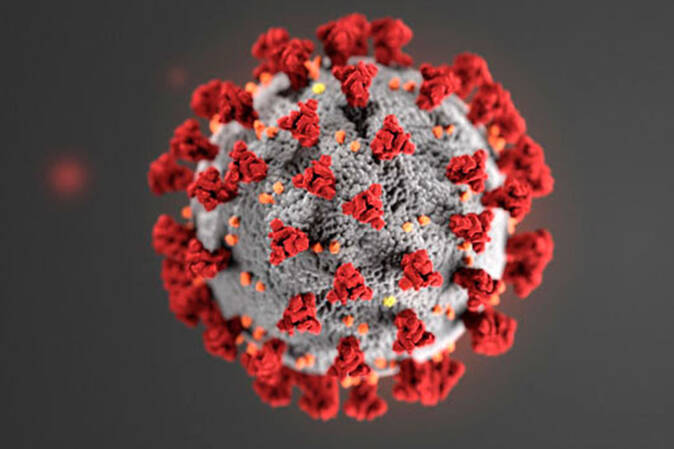The state Section of Epidemiology advised Alaska health care providers last week that only one type of monoclonal antibody treatment is preferred in protecting against the omicron variant of COVID-19.
The new guidance comes from the Centers for Disease Control and Prevention, and states that Sotrovimab — a type of monoclonal antibody treatment approved for emergency use by the Food and Drug Administration — should be used against omicron. The variant has shown to be resistant to two other approved monoclonal treatments — Bamlanivimab & Estesevimab and Regen-Cov, according to the Section of Epidemiology.
“Sotrovimab should be considered the preferred COVID-19 monoclonal antibody in Alaska as it retains activity against omicron,” the advisory from the Section of Epidemiology states. “Facilities should hold onto their supply of the other monoclonals but prioritize sotrovimab. It is available across Alaska but is a much more limited resource due to the supply chain.”
Monoclonal antibodies are laboratory-produced molecules that can trigger an immune response against COVID, according to the FDA. These treatments may block the virus from attaching to cells, making it harder to reproduce.
The health advisory from the CDC reiterated that vaccination against the virus is still the best preventative measure to avoid the need for monoclonal treatment, hospitalization and death.
The Pfizer-BioNTech vaccine is approved for everyone 5 years and older, while the Moderna and Johnson & Johnson/Janssen vaccines are approved for anyone 18 and older.
In addition to a primary series — two doses of the Pfizer or Moderna vaccine or one dose of the Janssen vaccine — experts are strongly encouraging booster shots to protect against omicron.
State health officials have said that current studies indicate a person with their primary series is expected to be about 35% protected against omicron. With a booster dose, the protection jumps to about 75%.
The FDA and CDC are recommending Pfizer boosters for anyone 12 and older at least five months after the primary series. Additionally, Moderna boosters are recommended for anyone 18 and older at least six months after a primary series.
Janssen boosters are approved for anyone 18 and older at least two months after initial vaccination, although the FDA announced it was revising its fact sheet for the Janssen shot to include more data on the risks of blood clotting associated with the vaccine.
According to the Department of Health and Services Facebook page, the state is recommending people with a primary Janssen vaccine to get either a Pfizer or Moderna booster for more robust protection.
Data from the CDC shows that 98.3% of new COVID infections from the week of Jan. 2 through Jan. 8 were caused by the omicron variant.
Scientists discovered the new strain in South Africa during the week of Thanksgiving, and the first case in the United States was reported shortly thereafter on Dec. 1.
The CDC advisory states that omicron has caused a “rapid increase in infections consistent with what has been observed in other countries.”
The first omicron was sequenced in Anchorage on Dec. 13, and since late December, cases have increased substantially statewide.
According to state data, the week of Jan. 3-9 saw a 124% increase in COVID cases from the week of Dec. 27 through Jan. 2.
Additional authorized COVID therapies can be found on the Emergency Preparedness and Response page on the CDC website.
Getting a vaccine: COVID-19 vaccines do not cost money.
Many organizations on the central peninsula, including Walmart, Walgreens, the Kenai Fire Department and Kenai Public Health, offer vaccines. They are also available for both residents and visitors at airports in Anchorage, Juneau and Fairbanks.
Additionally, Soldotna Professional Pharmacy hosts a walk-in clinic in its strip mall storefront at the “Y” intersection of the Sterling and Kenai Spur highways. The clinic is open from noon to 6 p.m. Monday through Friday and 10 a.m. to 2 p.m. on Saturday.
Vaccination appointments can also be scheduled through the online portal PrepMod, which can be accessed at myhealth.alaska.gov.
A map of vaccine providers can be found on DHSS’ COVID-19 vaccine website at covidvax.alaska.gov.
People who would like assistance scheduling a vaccination appointment can call the Kenai Peninsula Borough Office of Emergency Management call center. The center operates Monday through Friday from 9 a.m. to noon. The central peninsula call center can be reached at 907-262-4636. The Homer call center can be reached at 907-235-4636. The Seward call center can be reached at 907-224-4636.
Reach reporter Camille Botello at camille.botello@peninsulaclarion.com.

